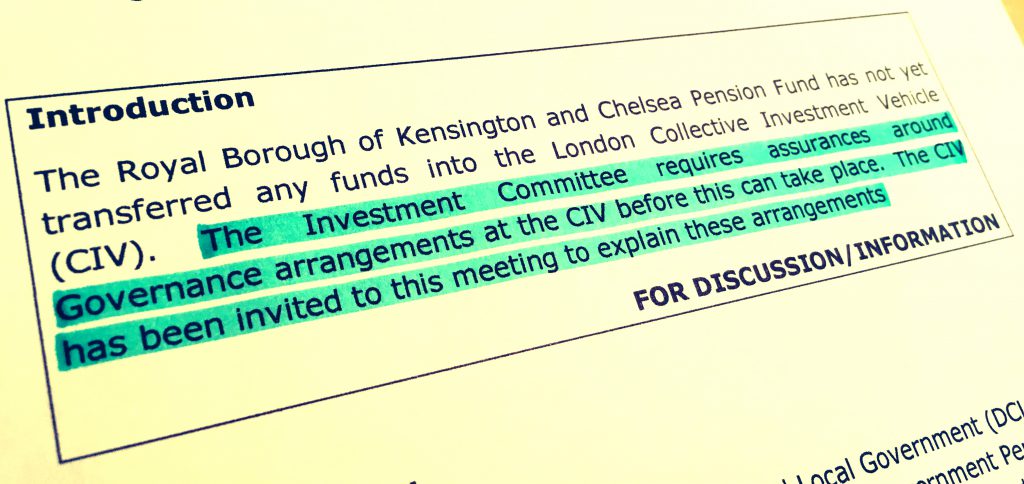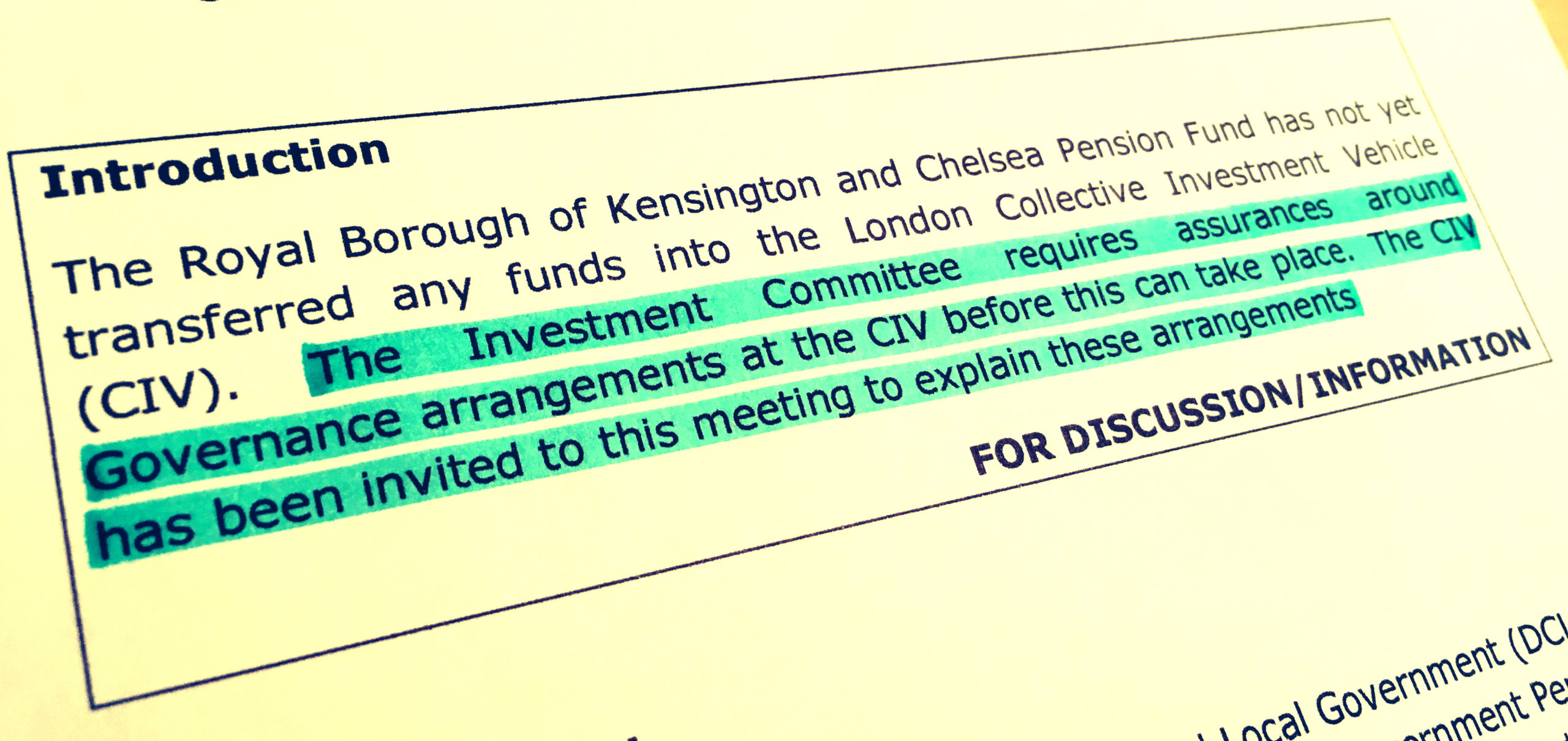
A London council says it wants assurances on governance arrangements, largely concerning manager selection and the role of active managers, before it commits any investments to its Local Government Pension Scheme (LGPS) pool.
Representatives from the London Collective Investment Vehicle (CIV) pool have been asked by a member authority’s investment committee to explain why it should commit funds to the pool.
Subscribe to our LGPS Quarterly Briefing and be first to receive more content like this.
Speaking to Room151 this week, Kensington & Chelsea councillor Warwick Lightfoot, cabinet member for finance and strategy, said that he welcomed the CIV but did not want to find the council compelled to put funds into it.
He said: “A CIV can be a useful device for us to invest in, if it is with people we want to invest with. However, we would probably want a closer eye on fund management than a CIV allows.”
Among questions the council’s investment committee want answered are how it can hold the CIV accountable and how it can retain some control over manager selection.
A report from the town clerk said: “Why should the CIV be responsible for the managers selected or offered?”
And in a move to open up negotiation about the merits of active fund management — where managers are in theory rewarded for outperforming an investment benchmark — the document said: “What regard is being made for return and risk in terms of manager selection?”
The report said: “The Royal Borough of Kensington and Chelsea Pension Fund has not yet transferred any funds into the London CIV.
“The investment committee requires assurances around governance arrangements at the CIV before this can take place.”
Lightfoot also voiced worries that the CIV will find it difficult to cater for the specific investment needs of all member funds.
He said: “Some local authorities have very strong balance sheets and can afford to take greater risk and greater risk assets, confident that they can deal with a variability on their return.
“We may find ourselves being taken down routes that may not be consistent with our approach to risk.”
Lightfoot also said that he would be sceptical about any move by the CIV to create an infrastructure mandate. “Returns are generally low from infrastructure. There is this slightly naïve argument that local authorities should invest in their own infrastructure but that is a bit like a publican becoming his best customer,” he said.
He added that he would be reluctant for the council to let the CIV manage private equity investments on its behalf. “It is a complicated thing – would I trust someone else to do it on my behalf? I am not sure.”
The council is also considering going its own way, independent from the CIV, on a new property investment strategy, he said.
When asked how he thought the council would escape from the government’s promise to effectively mandate funds to pool their assets, Lightfoot said: “We hope the government has an open mind and will take account of the circumstances of carefully funded schemes like Kensington & Chelsea’s. It is very committed to the devolution agenda.”
Kensington and Chelsea’s paper also raises concerns about an apparent “obsession” with fee reductions through the pooling process and asks CIV representatives: “How is this linked with getting the funds better overall returns?”
In addition, the council also wants clarity on the CIV’s approach to environmental, social and governance (ESG) issues. It said: “The committee places no major constraints on environmental, social and governance (ESG) at present and do not want to disinvest from existing assets. How will the CIV deal with this?”
Meanwhile, Chris Buss, director of finance and deputy chief executive at Wandsworth Borough Council, said that councils which have transferred some of their investments have already made significant fee savings through the CIV.
“Based on the old Wandsworth fund, ie. before our merger with Richmond — with funds either in the CIV, impacted by the CIV or about to go into the CIV — we are anticipating a net fee reduction of just over 30%,” he said.
It is understood that total savings on fees across the CIV already amount to £1.3m.
Buss added that the CIV is enabling councils to renegotiate fees on mandates such as life wrappers, which are unable to be transferred into the pool.












